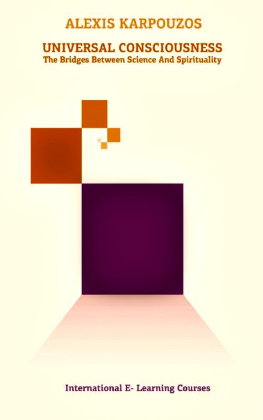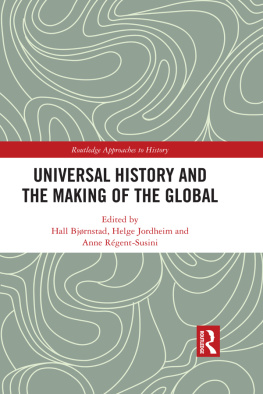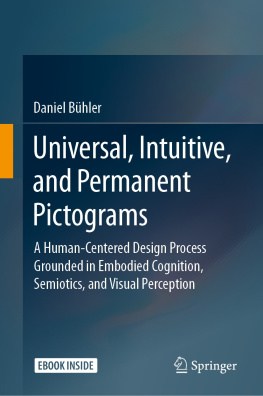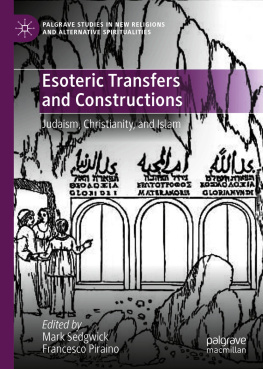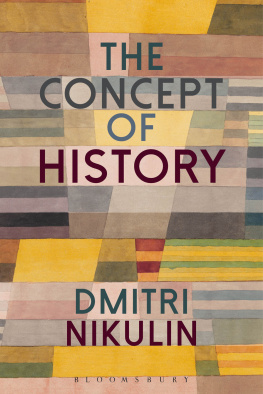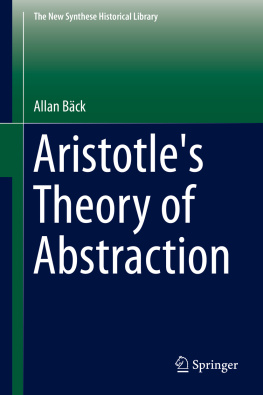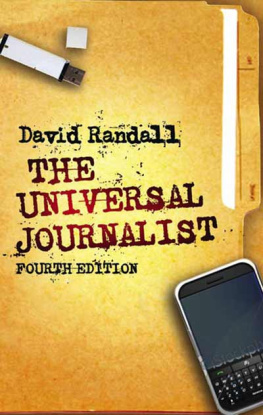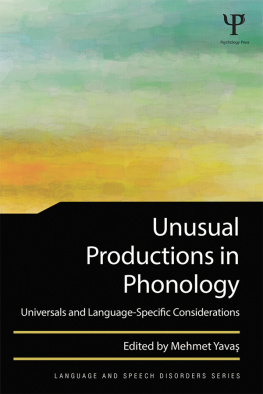Donald E. Brown - 26 Dec
Here you can read online Donald E. Brown - 26 Dec full text of the book (entire story) in english for free. Download pdf and epub, get meaning, cover and reviews about this ebook. year: 26 Dec 2017, publisher: McGraw-Hill Companies, genre: Science. Description of the work, (preface) as well as reviews are available. Best literature library LitArk.com created for fans of good reading and offers a wide selection of genres:
Romance novel
Science fiction
Adventure
Detective
Science
History
Home and family
Prose
Art
Politics
Computer
Non-fiction
Religion
Business
Children
Humor
Choose a favorite category and find really read worthwhile books. Enjoy immersion in the world of imagination, feel the emotions of the characters or learn something new for yourself, make an fascinating discovery.

- Book:26 Dec
- Author:
- Publisher:McGraw-Hill Companies
- Genre:
- Year:26 Dec 2017
- Rating:3 / 5
- Favourites:Add to favourites
- Your mark:
- 60
- 1
- 2
- 3
- 4
- 5
26 Dec: summary, description and annotation
We offer to read an annotation, description, summary or preface (depends on what the author of the book "26 Dec" wrote himself). If you haven't found the necessary information about the book — write in the comments, we will try to find it.
26 Dec — read online for free the complete book (whole text) full work
Below is the text of the book, divided by pages. System saving the place of the last page read, allows you to conveniently read the book "26 Dec" online for free, without having to search again every time where you left off. Put a bookmark, and you can go to the page where you finished reading at any time.
Font size:
Interval:
Bookmark:
Donald E. Brown
Professor Emeritus
Department of Anthropology
University of CaliforniaSanta Barbara
Copyright 1991, 2017 by Donald E. Brown. All rights reserved. No part of this publication may be reproduced or distributed in any form or by any means, or stored in a data base or retrieval system, without the prior written permission of the author or publisher.
For Carrie, Barry, and Rosminah
This book is a reflection on human universals and what they imply. Some of the implications are far reaching. I conclude, for example, that what we know about universals places clear limits on the cultural relativism that anthropologists have developed and disseminated widely. Furthermore, what we know about universals suggests the need to revise a conception of human nature that anthropologists have helped to shape and that has spread so far beyond the social sciences that it is now embedded in what Robin Fox (1989:24) calls the whole secular social ideology of our time. Because these conclusions are far from trivial, it may be worth recounting the experiences that initially stimulated my interest in universals and led, ultimately, to this book. Since this book is only an imperfect step along the way toward the fuller assessment that human universals deserve, I will also point to its shortcomings.
In 1974 Donald Symons and I co-taught a seminar on primate and human sexuality. Symons presented an early draft of his book The Evolution of Human Sexuality (1979), in which he argued that there are certain pan-human sex differences. On the occasion that he discussed a list of these differencesit then contained, if I recall correctly, some five to seven items (such as the quicker and more visually-cued sexual arousal of males)I bet him that I could find a society in which each of the alleged sex differences was reversed. As a typical sociocultural anthropologist trained in the 1960s, I had absorbed the lesson of Ruth Benedicts Patterns of Culture (1934) and many other anthropological classics and textbooks that stressed the inherent variability and autonomy of culture. I was willing to accept the idea of certain kinds of widespread regularities or tendencies, but I thought it highly unlikely that sex differences in temperament or behavior would show any complex similarities in all societies. The latter smacked of rigid biological determinism. But I did not win the betand I began to think more carefully about human universals, cultural relativism, and, especially, about the role that human biology plays in human affairs.
Sometime thereafter I glanced through E. O. Wilsons On Human Nature (1978). My views were still so conditioned by the sociocultural perspectives in which I was trained that I was not inspired to read the book, but I noticed that Wilson quoted a list of human universals that had been compiled by the anthropologist George P. Murdock. The sociobiology controversy, galvanized by Wilsons book of that title, was very much in the air at the time, and it struck me that sociobiologists might be more convincing if they confined their explanations to universals rather than attempting to show that virtually everything that humans do somehow maximizes their reproductive success. While I no longer accept a simplistic formulation in which human invariants may plausibly be explained in biological terms, while the variables demand cultural explanations, that formulation did keep me thinking about universals.
A few years later, the books by Freeman, Malotki, and Spiro that are described in Chapter 1 were published. These books convinced me that the issues surrounding universals, especially the questions they raise about cultural relativism, needed more attention than they were receiving. I considered the prospect of writing this book, and I began to offer seminars and ultimately a lecture course on human universals.
When I began to write, I had in mind something relatively uncomplicated that might stand in opposition to Benedicts Patterns of Culture and draw attention to the existence and seemingly obvious implications of invariants in human affairs. But the issues turned out to be more complicated than I had realized, and the resulting book is a compromise between a popular essay and a more scholarly work. Moreover, once I felt that the main points had been articulated, I stopped searching for and digesting further materials on universals. I am confident that this book is the most exhaustive study of human universals to date, but I know that I have not covered the entire literature. (Although I have ceased to look for them, some 50 or so references on universals have piled up on my desk in the last year.) In spite of the compromises I have made, I am sure that many readers will find consolation in one reviewers observation that this book is only half as long as it could be.
There are some parts of the book that almost certainly will benefit from a more thorough thinking through than I now provide. Consider, for example, the definitions of universals: while I employ only a few of them, I cite a number of others that probably can be reduced to a shorter and more orderly list. And although I put considerable thought and effort into the explanation of universals, the issues sometimes require expertise that I do not possess. Finally, I should note the obvious: no anthropologist can be an authority on more than a handful of universals. The reader who wants to know whether a particular feature that I have accepted as being a universal really is so will have to go beyond this book. Although the future may allow me to correct some of the flaws, I must express the hope now that the persons I will thank below for their many thoughtful comments on this book will be credited for some of its strengthsto which they surely contributedbut not blamed for its shortcomingsfor which I just as surely am responsible.
The entire manuscript or very substantial portions of it were read by my departmental colleagues Napoleon A. Chagnon, Elvin Hatch, A. F. Robertson, and Donald Symons; by the other anthropologists George N. Appell, Robin Fox, Derek Freeman, Barry Hewlett, Allen R. Maxwell, Raymond Scupin, M. G. Smith, and John Tooby; by the linguists R. McMillan Thompson and Sandra A. Thompson; by the psychologists Leda Cosmides, Martin Daly, and Margo Wilson; by the sociologists Suzanne Retzinger, Thomas J. Scheff, and Pierre van den Berghe; and by a dozen or more students, of whom I would particularly like to thank Helen (Yonie) Harris, Walter Lehmann, Reed Wadley, and Tracy Wise. I received very helpful comments on specific aspects of the book from Ralph Bolton, Richard Chacon, Matthea Cremers, Alan J. Fridlund, Ward H. Goodenough, Thomas Harding, Douglas Hayward, Hsiu-Zu Ho, Brijitte Jordan, Gwendolyn Lauterbach, Jack N. Loomis, Paul Mattson, Susan Mies, Mattison Mines, Douglas Mitchell, J. Tim OMeara, Craig Palmer, Douglas Raybeck, Melford Spiro, Lawrence Sugiyama, and Janice Timbrook. Jean-Claude Muller, Robert Netting, and Ronald P. Rohner very kindly supplied me with materials too ample or too late to be properly incorporated in the book. At a very late stage I received encouragement and advice from the historian Carl Degler. I expect that his forthcoming book, In Search of Human Nature, which is a history of Darwinian thought in the social sciences, will expand and deepen the analysis presented in my chapter on history. In addition to the departmental colleagues already mentioned, I should also note the unfailing encouragement from other colleagues, particularly Manuel L. Carlos, William Madsen, and Phillip L. Walker, whose comments passed on in the hallways are much appreciated. To the scholars and students whose suggestions I have used but whose names now escape me, and to those whose advice I failed to take, I offer apologies.
Font size:
Interval:
Bookmark:
Similar books «26 Dec»
Look at similar books to 26 Dec. We have selected literature similar in name and meaning in the hope of providing readers with more options to find new, interesting, not yet read works.
Discussion, reviews of the book 26 Dec and just readers' own opinions. Leave your comments, write what you think about the work, its meaning or the main characters. Specify what exactly you liked and what you didn't like, and why you think so.


